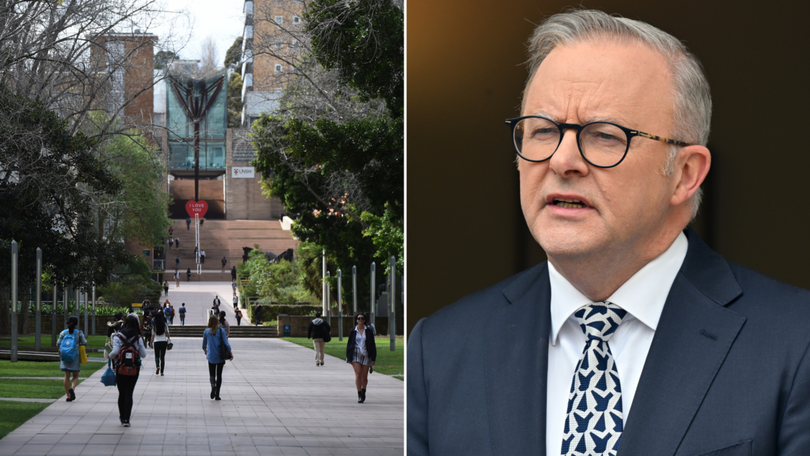Albanese Government’s new HECS-HELP changes to save uni students $680 a year in repayments
This cost-of-living relief applies to all graduates earning up to $180,000 per year.

After a week of scandal centred on his travel perks, the prime minister will use a speech this Sunday to reset the Albanese Government’s agenda back onto the cost of living, promising to cut average student debt repayments by $680 a year.
Labor says it will introduce legislation next year to lift the minimum income repayment threshold by more than $10,000 a year (from about $54,000 in 2024-25 to $67,000 in 2025-26) and index it so it will always stay at 75 per cent of graduate earnings.
This cost-of-living relief applies to all graduates earning up to $180,000 per year.
Sign up to The Nightly's newsletters.
Get the first look at the digital newspaper, curated daily stories and breaking headlines delivered to your inbox.
By continuing you agree to our Terms and Privacy Policy.A university graduate earning $70,000 a year would see their minimum repayments cut by $1,300. While a graduate earning $80,000 a year would receive a cut of $850.
Anthony Albanese will pitch the policy as a way to boost take-home pay for one million young Australians getting started in their careers.
The prime minister will be in Adelaide on Sunday at a campaign rally with popular SA Premier Peter Malinauskas.
The theme of Sunday’s rally is Building Australia’s Future, and the prime minister will tell the Labor faithful that the new education policy is “good for cost of living (and) intergenerational fairness”.
“This is what Labor Governments do – we help people under pressure, and we build for the future,” Albanese said.
“This will be the heart of the positive and ambitious agenda we take to the Australian people at the next election.
“Labor will always be the party of education. No matter where you live, no matter how much your parents earn – we will work to ensure the doors of opportunity are open for you.
“We will make it easier for young Australians to save in the future, and we are going to make the system better and fairer as well.”
The Government will also move to a marginal repayment system for HELP debts, as recommended by the Universities Accord.
And has already changed the way student loans are indexed. The new indexation model caps the rate at the lower of the Wage Price Index (WPI) or the Consumer Price Index (CPI).
Originally published on 7NEWS
